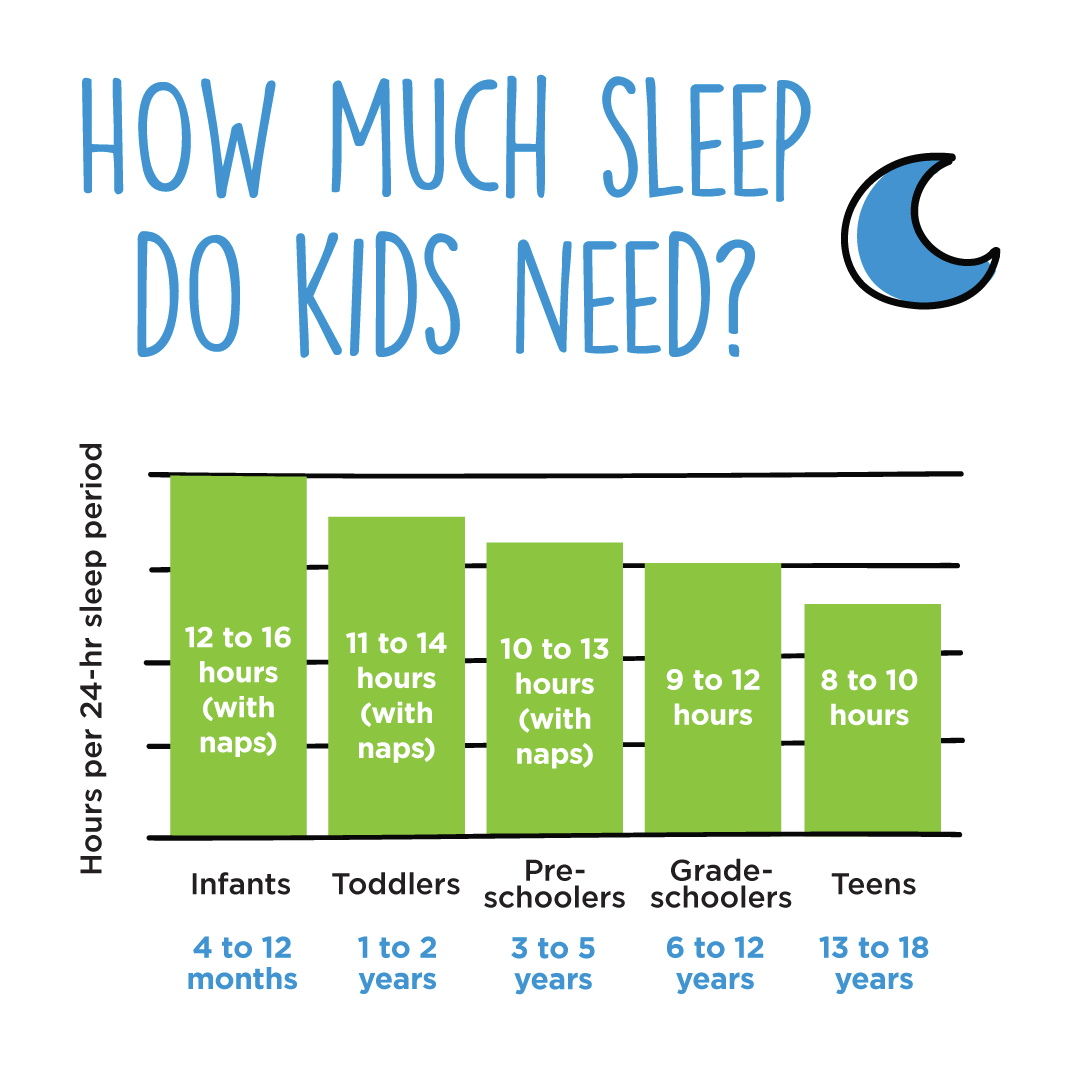Apr 28, 2023 /
Healthy Living
By Reagan Larsen, MD / Summit
Sleep: why is it so important for kids?
Sleep is one of the most important aspects of your child’s health. This is because much brain development and physical growth occurs when your child sleeps. Growth hormone, which is responsible for bone growth, is secreted at the highest levels within one hour after the onset of deep sleep.
Poor sleep also has effects on mental health, ability to focus and learn, and immune function. Kids with insufficient sleep may not appear sleepy to parents or caregivers. Instead, children & adolescents may exhibit attentional difficulties due to unsuspected sleepiness, hyperactivity secondary to efforts to stay awake, or aggressive and disruptive behavior that reflects inability of a sleep-deprived frontal cortex to regulate emotion normally.
The amount of sleep your child requires depends on their age. Double check the graph below to see if your child, on average, is getting enough hours of sleep per day.

Sleep hygiene is a term that refers to activities leading up to sleep that improve the ability to fall asleep and get good quality sleep. Below are some important goals for good sleep hygiene.
Trouble falling asleep and staying asleep affects an estimated 15-25% of children and adolescents. First and foremost, make sure you are practicing good sleep hygiene as this can fix many problems. Schedule an appointment with your child’s doctor to make sure there are no health issues affecting sleep, such as obstructive sleep apnea related to big tonsils. A melatonin supplement may be useful for short-term use, but you should discuss this with the pediatrician before use and keep in mind that melatonin supplements are not regulated by the FDA. The long-term use of melatonin in children has not been well studied. In severe cases, your child may be referred to a sleep specialist for a sleep study or medications may be prescribed.
https://www.uptodate.com/contents/insomnia-the-basics?search=sleep%20hygiene%20patient%20info&source=search_result&selectedTitle=1~118&usage_type=default&display_rank=1#H2398614163
https://www.healthychildren.org/English/healthy-living/sleep/Pages/melatonin-and-childrens-sleep.aspx
©2026 Wasatch Pediatrics